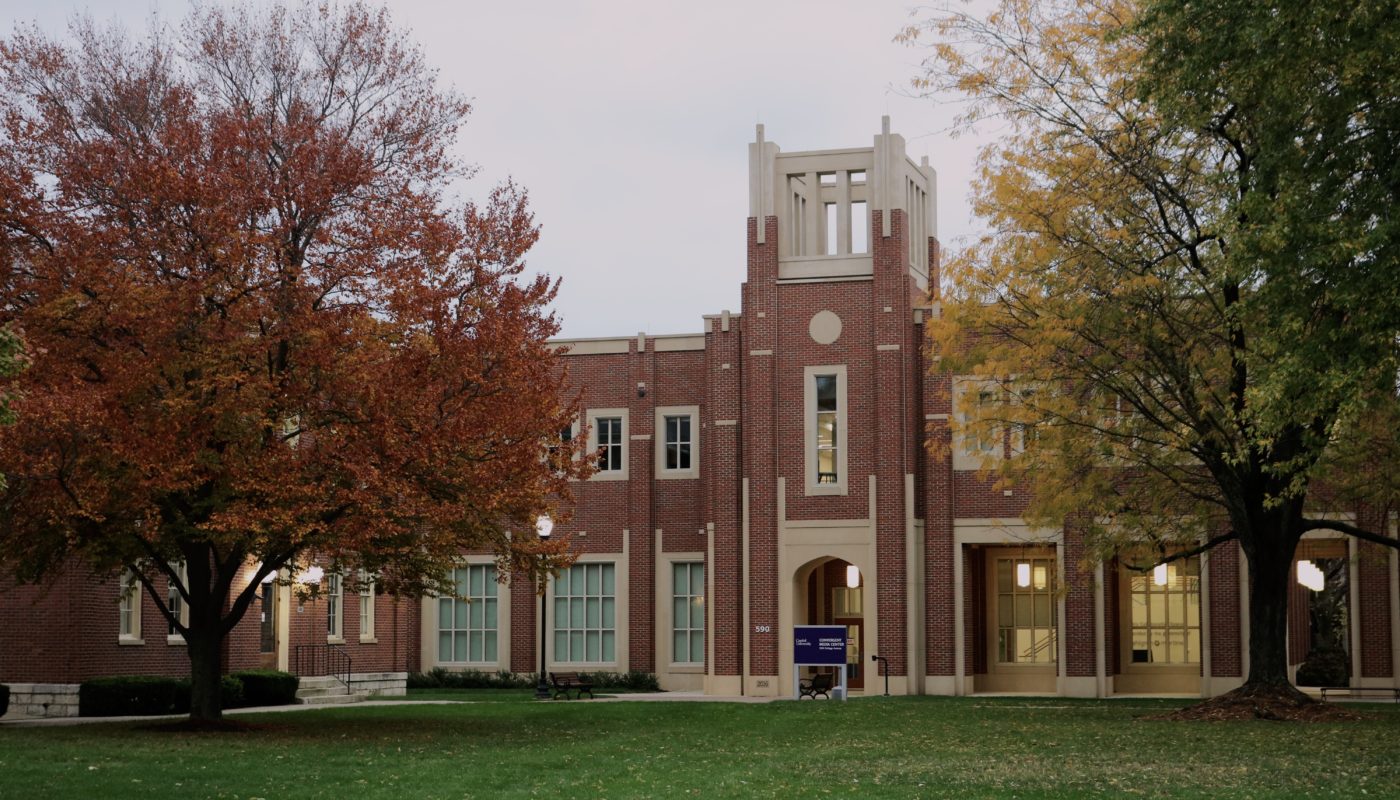Going to college has always been on the expensive side of things. Students attending these institutions are always on the hunt for perks, deals, discounts, and free stuff.
Fortunately, Capital University is offering several perks and services for free or discounted to current students.
Of course, you can use your “edu email” to get discounts on Spotify and Hulu, rent used textbooks, and have access to career development and academic success.
However, Capital University contributes many discounts and services directly to students.
One of the resources that are offered to students is the Hamma Library at Trinity Lutheran Seminary.
The Hamma Library has a massive collection of religious centered books and documents. In fact, Elli Cucksey, the head librarian at the Hamma Library at Trinity Lutheran Seminary, said, “When you are searching Blackmore’s catalog, you are also searching Hamma’s catalog.”
The Hamma catalog is nearly equal in size to the entire catalog featured in Blackmore Library.
However, there is not much beyond religious focused texts and the occasional document that may have some musical significance.
Even if you do not have a specific need for religious specific texts, the Hamma Library is still worth a look as it does not get much foot traffic. This means it is an excellent place to sit down and get some work done.
Additionally, the bookstore also works to offer Capital students discounts on services as well. Bartleby is a tutoring service that students can get with their capital email addresses.
The benefit of this over academic success is that it is available 24 hours a day, and it too is free, but only for the first month. After that, it is $9.99.
So, if there is a particularly difficult assignment or project coming up, this may be worth a look.
Potentially the largest benefit that Capital University gives to students is a full subscription to the New York Times and the Wall Street Journal.
The subscription allows access to everything that either of these publications ever put out that also has been digitized.
Matthew Cook, the head of Blackmore Library said, “The discounts are there because of the work the library does with the vendors.”

Part of the reason that these are valuable resources for students is that without Capital, the cost of having the equivalent individual subscription goes to the stratosphere.
“If we had an individual subscription for every student on campus, it was something like a quarter of a million dollars for the NYT,” Cook said. “We get it for a steep fraction of that.”
Capital is able to do this by working with OhioLINK. A system that allows universities throughout Ohio to band together and pool their money which gives gigantic publications like the NYT and WSJ more incentive to agree to these significant discounts.
Additionally, the library is looking into striking a deal with the Columbus Dispatch.
Cook said, “We haven’t quite found a subscription service that would allow us to do it for the students.”
On top of this, something that benefits primarily faculty is the Chronicle for Higher Education. This is similar to the NYT and WSJ, except its range of topics is much more specific.
That being, they really only cover topics directly related to higher education.
Cook said that the Chronicle for Higher Education focuses on stuff that students and faculty may have an interest in. Things such as remote learning, what is going on with education, the value of education, and, obviously, the role COVID-19 is playing in the higher education system.


